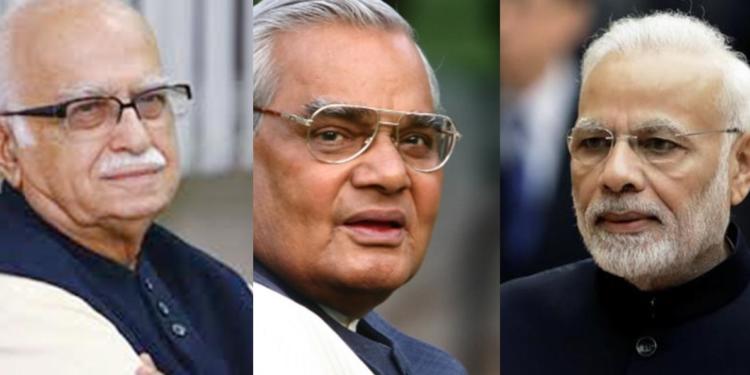Amidst the escalating tension between India and Pakistan and an undeclared war at hand, the opposition parties are more interested in vilifying the government, disapproving the armed forces and in general undermining the national interest. Now is the high time to look back at how the Bharatiya Janata Party (BJP) had behaved as an opposition party on matters of national security. It may give some sense to the Congress and parties in opposition as to how to fulfill their duties toward the nation.
Even a cursory look at the times of crisis reveals that BJP (and its predecessor, Jan Sangh) stood by the government when it came to national security. Whether it be Sino-Indian war or liberation of Goa, or the 1971 war for the independence of East Pakistan, followed by Atal Bihari Vajpayee representing the government in 1993 on the question of Kashmir in Geneva or the Indo-US civil nuclear deal, BJP has, by and large, stood by the position of the government, time and again, as far as foreign issues or national security is concerned.
When it came to national security, contrary to the current political climate where political brownie points have trumped national security, BJP sided with the stand of the government in power. In the wake of Pulwama attack, a joint meet of the 21 opposition parties took place and afterwards issued a politically-charged statement. Clearly aimed at undermining the government, the opposition parties, in a joint statement, “expressed their deep anguish over the blatant politicization of the sacrifices made by our Armed forces by leaders of the ruling party.”
On a contrary remark at the time of Sino-India war, the opposition party including Praja Socialist Party (PSP), the Swatantra Party, the Lohia Socialists, all stood by the government and pressurized for the military actions against China. And guess what; leading the pack was none other than the Jana Sangh’s leader in the Lok Sabha, Atal Bihari Vajpayee.
In September 1959, Vajpayee further tabled a motion in the Lok Sabha demanding various strict measures against China. The motion points at taking more effective steps to meet Chinese inroads into Indian territory including “China be asked to vacate aggression by a particular date line, China be informed that negotiations in respect of any border adjustments can be held only subsequent to such vacation, and that too only on the basis of the McMahon Line.”
Besides this the opposition parties provided a proper roadmap of foreign policies, which asserted, “Circulation of Chinese Maps which have falsely depicted parts of India as Chinese territory, and of Chinese magazines, or other literature, which have been publishing such maps, be banned in India; and Immediate steps be taken to reinforce our northern defences and develop transport and communication facilities in border regions for better protection of the area.”
Although the media condemned the opposition’s demand of strict actions and even called Jana Sangh war mongers (indirectly) and questioned their “knowledge of military affairs”, everyone knows the effect of dilly-dally stance of our first Prime Minister at the time of Sino-Indian war.
Similarly, on the issue of Indo-US Nuclear Deal in 2011, BJP spokesperson at that time, Prakash Javadekar said there are “no contradictions” in the stand of BJP and the government. “We have made our position clear both in the Lok Sabha and Rajya Sabha and through are press statements that we value strategic relations with the US and that all sources of energy should be tapped. We keep national interest foremost…there is no double speak,” he said. However, he acknowledged that there were few changes that opposition had suggested to the government.
It is absolutely shameful that at a time when Congress and the whole opposition should stand firmly with India, it is making unnecessary political remarks. The opportunistic and irresponsible opposition should understand that the security and integrity of the nation is above all.




























